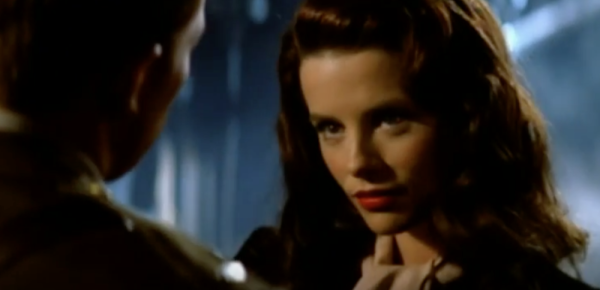

The Dec. 7, 1941 attack on Pearl Harbor is one of the most defining events in American history. Carried out by 408 Japanese bombers just off the Hawaiian Island of Oahu, it turned the U.S. Pacific Fleet into a watery graveyard for hundreds of unsuspecting soldiers, sailors, and Marines. The story is one that should be told because it’s one that should never be forgotten. But Michael Bay’s 2001 film about the tragic events of that day failed to do it justice. Not only did the movie neglect to provide any real historical context, but the attack itself served more or less as a backdrop for a love story that wasn’t compelling enough to make up for the fact that it was fraught with inaccuracies.
“Pearl Harbor” is about three hours long, which is three hours too long, and here are six reasons why.
It’s not actually about Pearl Harbor… at all.

Despite its name, the movie is not actually about the Pearl Harbor attacks. It’s not about World War II, or the men who died that day — the one that President Franklin D. Roosevelt said would live in infamy. Pearl Harbor instead serves as a convenient backdrop for a really cheesy love story. In that regard, the film can easily be compared to James Cameron’s 1997 “Titanic,” which also attempted to create an epic romance framed by a historical tragedy. But where Titanic smashed box office records, “Pearl Harbor” (excuse the pun) crashed and burned.
Ben Affleck.

Need we say more?
It’s a little racist.

The overly simplistic way that director Michael Bay portrays the Japanese removes the complex framework of socio-economic and political circumstances that led to the bombing of Pearl Harbor. Essentially, the cartoonish enemies are depicted as one-dimensional entities going to war just because their oil supply has been cut off by a perceived lesser nation. In addition, Cuba Gooding, Jr. plays an actual African American Pearl Harbor hero — Doris Miller. But much of the way this character is handled in the movie does not accurately reflect how he would have been treated considering he was black in the 1940s. For example, Kate Beckinsale’s character, a white female nurse, would never have been allowed to be alone with him, tending to his injuries.
The dialogue is terrible.

“It’s a dud!” is one of the more famous lines from the movie, but it should serve as a review of this film’s dialogue. The one-liners don’t land. They do, however, bomb. Between Alec Baldwin yelling, “max power!,” and Josh Hartnett shouting,”I think World War II just started!” into a phone in the midst of the bombing, the dialogue lends little to the historical and romantic angles of the movie. And frankly, most of it is ridiculous.
The patriotism feels forced.

There is no stand-out speech, nor is there an epic battle moment that makes you beam with pride as an American citizen. The dialogue, the acts of heroism, the caskets draped in American flags, even the soundtrack — all feel like like the result of someone trying too hard. Consequently, all the attempts at patriotism come off very clichéd, as though Michael Bay just took all of the worst parts of all of the worst war movies and rolled them together into one disastrous film.
It’s historically inaccurate.

Where do we begin? In one scene, the camera pans out to show a full naval fleet, which includes nuclear submarine — a vessel that didn’t exist during the 40s. It also includes E-2 Hawkeyes, which weren’t used until the 60s. And the Jeep they drive across the golf course during the bombing is a Korean War-era M-38. And the kicker: the raid on Tokyo in retaliation for Pearl Harbor definitely didn’t go down the way it was portrayed in the movie. It was just a plot device to kill off Josh Hartnett so that Kate Beckinsale could marry Ben Affleck in the most twisted love triangle ever filmed.
